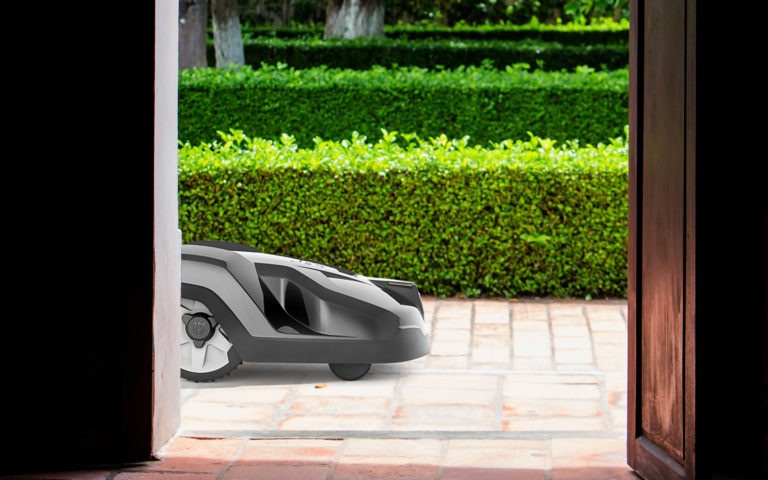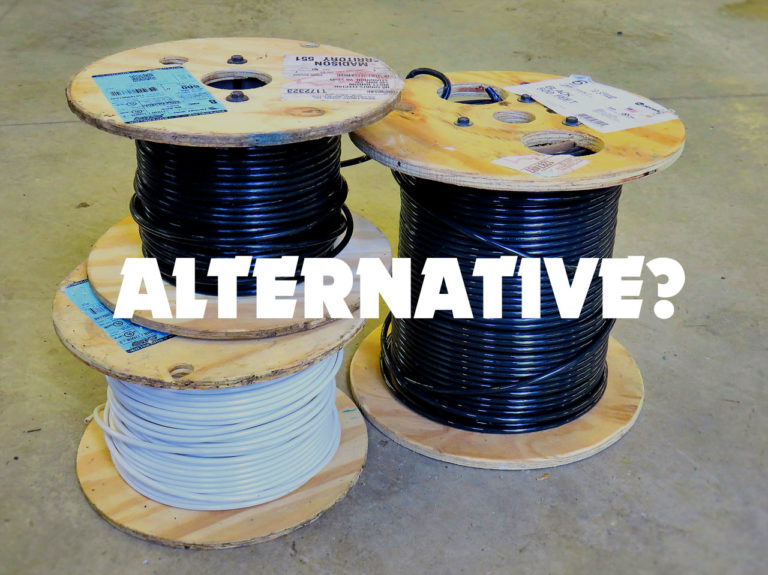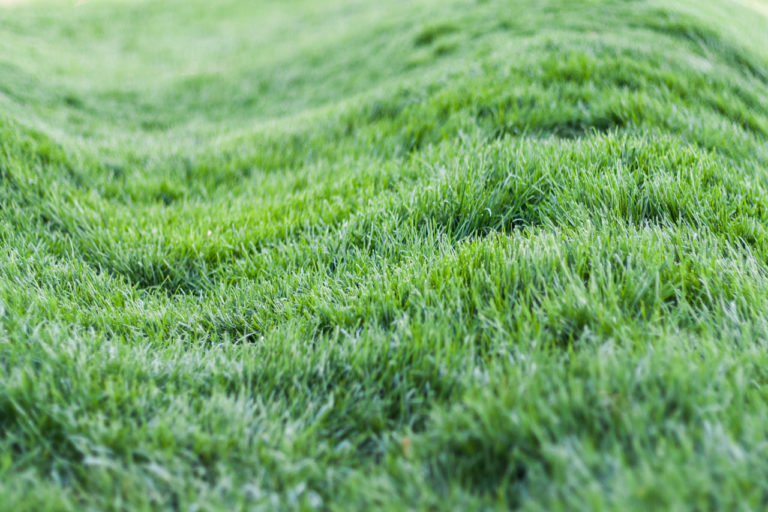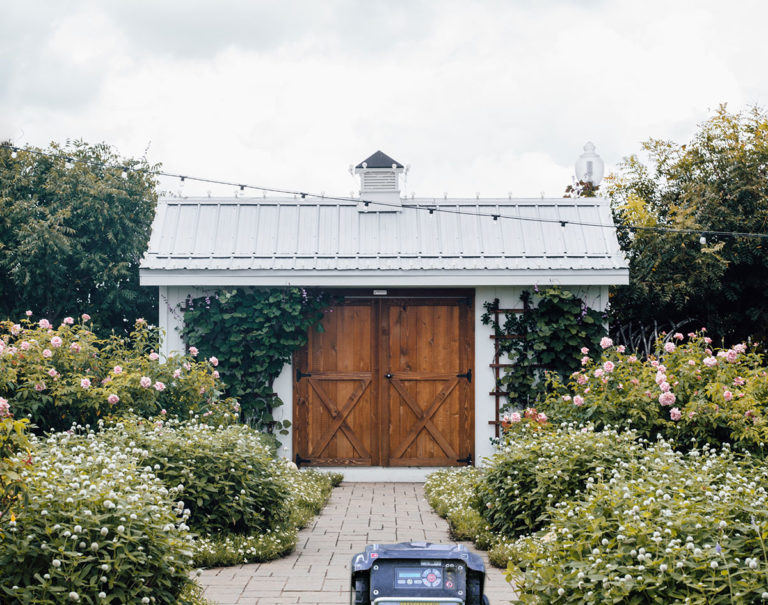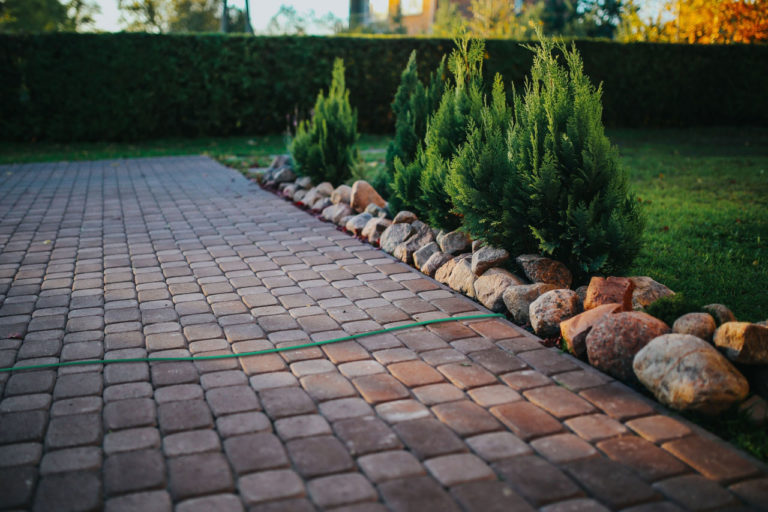If you want to buy a robotic mower, one of your first questions is probably whether the mower has to mow on your property every day, or whether it is sufficient to mow less often. Since I am already quite familiar with the topic, I will explain everything about it here.
Does the robotic mower have to mow every day? In general, a robotic mower has to mow the lawn every day. Otherwise the robot’s mulching system would not work well, as the grass cuttings must be very short in order to decompose quickly. Under certain circumstances, however, it is also possible to let the robotic mower mow less frequently.
Why exactly the robotic mower should mow every day and how it may also mow less frequently, I will explain to you in the following sections.
Contents
Why should the robotic mower mow every day?
The whole system and the basic idea of the robotic mower is based on the fact that it mows the lawn every day. If the lawn is mowed less often, the whole system will work more poorly. Why this is so, I will explain to you now.
The robotic mower is not able to collect lawn cuttings and dump them somewhere. Such a mower would have to be built completely differently just because of its weight. It would need a larger battery and a more powerful motor, which in turn would cause further problems.
However, such a robotic mower has the advantage of being able to mow virtually any time, as it does not require anyone to steer it by hand. Therefore, it was decided to kill two birds with one stone. instead of collecting lawn cuttings, the robotic mower simply leaves them lying around as natural compost.
By mowing the lawn every day, the mower only ever cuts a very small tip off the lawn. These tiny clippings spread over the grass and can decompose quite quickly. This way, not only does the robotic mower not have to collect the clippings, but the nutrients released from the decomposing lawn mulch can be used by the lawn as free and natural fertilizer again.
The mulching system therefore ensures that the lawn receives new nutrients regularly and at the same time avoids forcing you or the robotic mower to collect the lawn cuttings. This also has the added advantage that there is more room in the compost bin for other things.
Just so you know, the mulching system does not entirely replace the regular fertilization of the lawn. However, you can fertilize the lawn less often, saving up to 40% of the amount of fertilizer you would normally use. You can also use special fertilizers to make up for supply shortfalls. You can read more about this here.
Finally, the lawn likes to be mowed daily, while other plants, such as weeds, do not necessarily like it.
What if you mow the lawn less often?
If you have the lawn mowed less often, this can lead to certain problems. For one thing, mulching only works really well with a very short lawn cut. If the trimmings are much longer, the decomposition process takes longer – even if new material is added less often.
Due to the more infrequent but larger supply of new lawn cuttings and the slower decomposition process, the mulching process can no longer take place properly.
The accumulation of lawn cuttings then leads to lawn thatch. This is a layer of dead lawn material that forms between the lawn and the ground. A thin layer is normal and occurs naturally. But if this layer becomes too thick, it poses a problem.
Thatch that is too thick is problematic for the lawn for two reasons. Firstly, too much lawn thatch causes poor aeration of the soil. This leads to poor root growth and can also encourage the development of mold and moss.
Secondly, the water permeability in the soil is worse. Much of the water from rain and irrigation will not reach the roots of your lawn, but will rather be absorbed by the layer of thatch, where it evaporates after a while.
Of course, all this has a very negative effect on the growth of your lawn. In addition, the lawn simply prefers to be mowed very often and to have only the topmost layer cut off. The less often you mow the lawn, the more stress you put on the lawn, because when it gets very long, you cut it in the middle instead of just cutting the tip.
This is also the reason why the overall appearance of your lawn improves with a daily robotic mower route. The lawn simply grows better, while certain (but not all) weeds stay away.
How can I still manage to mow the lawn less often?
Mow every other day
First of all, I can tell you that if you only have the lawn mowed every other day instead of every day, it will not dramatically affect the lawn. It will not be as perfect and healthy as if you mowed it every day, but it is relatively unlikely to become matted and thatched, for example.
However, you should then make sure that your robotic mower mows the entire area in one day and that there are no areas which it cannot manage in a single day being left unmowed for several days in a row.
If you are unsure how long it will take your robotic mower to mow your entire yard once completely, then take a look at this article here, where I have explored the subject in detail.
Less frequent mowing during slow growth
There are certain situations in which you can send your robotic mower out less frequently, namely whenever the lawn grows more slowly. This is the case, at the beginning and end of the growth phase, i.e. in spring when it is still relatively cold and in autumn when it is relatively cold again.
If you want to know for sure: at the end of March through beginning of April the lawn starts to grow, depending on the weather. Mostly it is still relatively cold, and the lawn will grow correspondingly slowly. During this time, you can send the mower out a little less often. Nevertheless, I would not take a longer break than 3 days. And you should observe carefully to make sure the growth rate does not increase. A few warm days and the growth will already begin increasing rapidly.
The same applies to dry and hot periods in summer when less-than-ideal conditions cause the grass to grow more slowly. Of course, this also depends a lot on whether you water the lawn or not. In any case, it would be better for your lawn to water it in the evening and have it mowed every morning. If your robotic mower has sufficient power, only a few hours in the morning may be enough.
Choose a robotic mower with a larger area output
Another possibility for having your robotic mower mow less frequently is to buy a model with a larger area capacity. This robot will then cover a larger area in the same amount of time, which means you can use it less often.
In any case, when choosing the right area output, you have to consider how long and how often you want to use the robotic mower. If you would like to know more about how to figure out what area output your robot should have, you should read this article.
Here you can take a look at different robotic mower models I recommend for different area sizes.
- Recommended Robotic Lawn Mowers for Small Yards 2021
- Recommended Robotic Lawn Mowers for Medium Yards 2021
- Recommended Robotic Lawn Mowers for Large Yards 2021
If you want to use your robotic mower less frequently, choose a correspondingly larger model with more area output. The area output calculator can also be helpful here.
Related questions
How long should the robotic mower mow? The question of how long the robotic mower should mow per day depends on the size of the area and the area output of the device. The maximum area output of the manufacturers often assumes a continuous operation or a daily operation of 13 hours. If the robotic mower is not to be used for such a long time during the day, a more powerful device with a higher area output must be used.
Also interesting: How long does a robotic mower need for your lawn?
What is the ideal cutting height for the robotic mower? The ideal cutting height of a robotic mower is usually 2-4 inches. However, there are various reasons for setting it differently. Display lawns, for example, can be mowed shorter, while shade lawns should remain a little longer. In summer it is also advisable to set a higher cutting height to protect the lawn from drying out
Also interesting: Correctly setting the cutting height on the robotic mower
